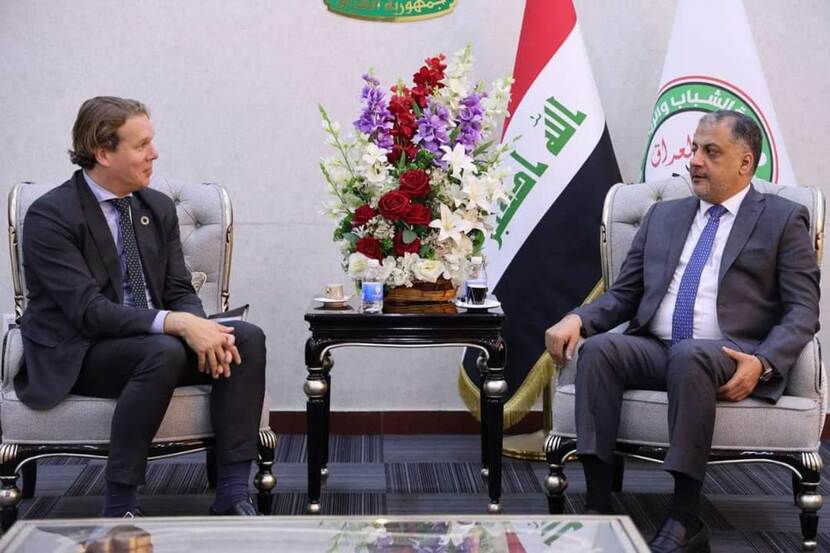The Struggle for Youth Employment in Iraq
After years of conflict and political turmoil, the economy of Iraq is once again growing and its international position is improving gradually. However, the country is still highly dependent on its oil revenues, while Iraqi youth is struggling to find employment. These topics were discussed during a recent visit by the Ambassador for Youth, Education and Work (Jurriaan Middelhoff), who was joint by representatives from the Netherlands Enterprise Agency.

The Iraqi Economy and Jobs for Youth
The government of Iraq and the Kurdistan Regional Government have been working on diversifying the Iraqi economy for allowing growth in the private sector. However, the largest bulk of the Iraqi youth still aspire a job at the government, as these jobs are most stable. How come?
Registering a company in Iraq is difficult. The established laws that govern the business infrastructure are usually too outdated to provide for a good business environment in Iraq. In the KRI, the Netherlands Consulate and other local stakeholders have made serious efforts in the past two years to support the KRG in improving this registration process. Despite this visible progress, not all issues are solved and too many businesses remain unregistered in Iraq.
Companies can therefore not offer trustworthy contracts for employees. While these private sector jobs are normally the jobs that generate a higher income, the fact that contracts and registration are untrustworthy renders the jobs at companies less reliable than jobs at the government.
Furthermore, pensions are almost solely organised for civil servants, and proper legislation on social security for the private sector is absent. Also, it’s almost impossible to obtain a mortgage in Iraq without having a stable job provided by a government institution.
Currently, these government jobs already account for about 40% of the job market in Iraq. Unsurprisingly, this has not made the government any more efficient. The ongoing case of outdated legislation and a lack of willingness to make real change in either the public or the private sector, has resulted in a conundrum that can’t be solved without viable alternatives.
Work in the Private Sector: An Expat Endeavor
Even if young Iraqi aspire to work in the private sector, it’s made difficult for them. The educational system is highly theoretical and does not provide students with the necessary (practical) skills. Also, the dispersion of study areas is out of balance, as there is a surplus of students obtaining expendable degrees and a shortage of students obtaining the ones that are necessary for private companies ones.
Most companies therefore seek their talent abroad and hire foreign personnel that does have the necessary skills to fill these positions. On top of that, universities lack the means to address this, whereas they are large unable to make alterations in their curricula. Indeed, most of the curricula are determined top-down, at Ministerial level.
Even though knowledge institutes are supposed to have career development centres (hereafter CDCs), these centres often lack the necessary means to properly support students in finding suitable employment. This results in a persisting gap in knowledge and skills between the ones who are freshly graduated and employers from the private sector.

Dutch Support for Bridging the Gap
In line with the Youth At Heart strategy, the Netherlands has set-up a pilot project in Iraq to bridge this gap. The ‘Youth Employment’ pilot offers skill trainings to students at four different universities in the Kurdistan Region of Iraq.
The project is implemented by the Iraqi consultancy company Wedo, who brings together students, CDCs and the private sector for co-designing a training program that fits the needs of all stakeholders involved. After following the program, promising students are offered internships at the involved companies, hopefully resulting in a prosperous career in the private sector.
What’s More to Do?
Even with a successful pilot, there is much more to be done for the labour market in Iraq to function properly. In order for the Iraqi economy to really diversify, the private sector is of utmost importance. Simplifying and reducing the costs of registering businesses in Iraq can motivate more companies to formalise their activities and thereby make their jobs more attractive.
Youth in Iraq accounts for the largest bulk of the population, upwards of 70%. As such, it’s imperative that young people are involved meaningfully in the private sector, simply to enable them to address the many challenges they face in their country.